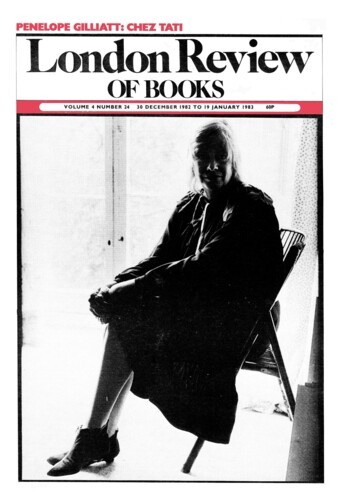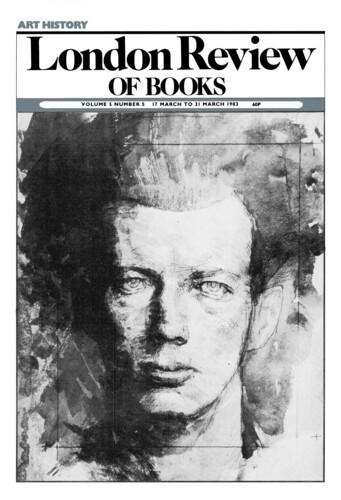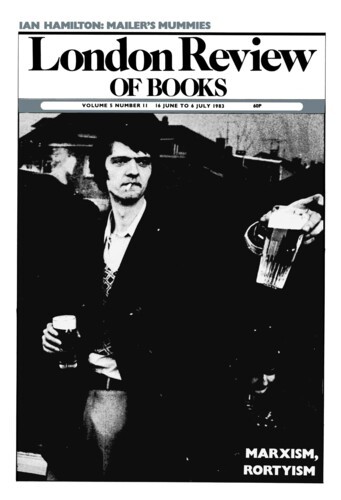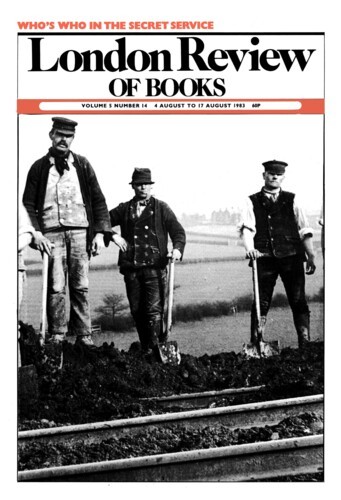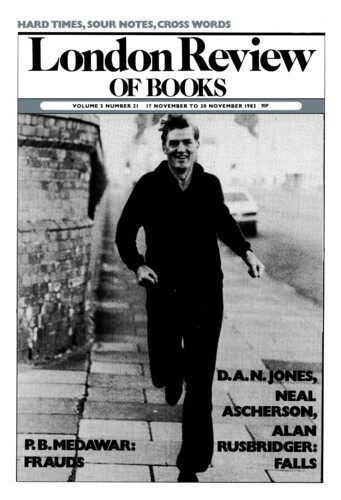Mythic Elements
Stephen Bann, 30 December 1982
In order to envisage the curious achievement of Emma Tennant’s Queen of Stones, you must first imagine that Virginia Woolf has rewritten Lord of the Flies. Interior monologues and painfully acute perceptions of a seaside landscape combine to colour in what is essentially a tale of a group of girls wrecked on a desert island. The fact that the desert island is just off the coast of Dorset, and has been isolated by an exceptionally heavy fog, is quite immaterial. It is the isolation from the adult world that counts – and of course the fateful pattern of relationships that emerges from that isolation. But having imagined Mrs Woolf at this recuperative task, you must then take into account the likelihood that she has been nosing through the Hogarth Press edition of the works of Freud. Intercalated with the story of rivalries and affiliations among the hapless castaways is a series of reports by ‘Dr Ross, Freudian Psychoanalyst, aged 76’. Despite his great age, Dr Ross has a shrewd diagnosis to make about Bess Plantain, the adolescent girl who initiates the collective violence.
